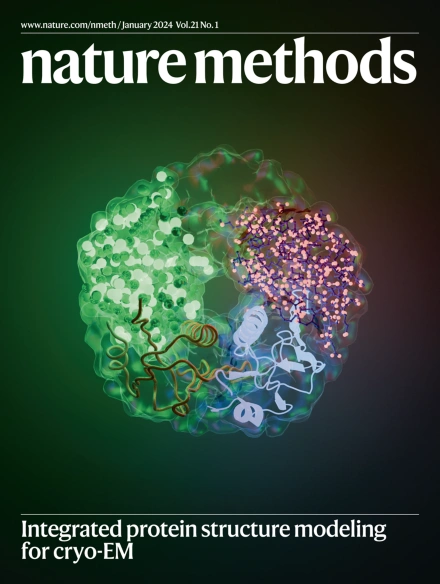Moculus: an immersive virtual reality system for mice incorporating stereo vision
IF 36.1
1区 生物学
Q1 BIOCHEMICAL RESEARCH METHODS
引用次数: 0
Abstract
Due to technical roadblocks, it is unclear how visual circuits represent multiple features or how behaviorally relevant representations are selected for long-term memory. Here we developed Moculus, a head-mounted virtual reality platform for mice that covers the entire visual field, and allows binocular depth perception and full visual immersion. This controllable environment, with three-dimensional (3D) corridors and 3D objects, in combination with 3D acousto-optical imaging, affords rapid visual learning and the uncovering of circuit substrates in one measurement session. Both the control and reinforcement-associated visual cue coding neuronal assemblies are transiently expanded by reinforcement feedback to near-saturation levels. This increases computational capability and allows competition among assemblies that encode behaviorally relevant information. The coding assemblies form partially orthogonal and overlapping clusters centered around hub cells with higher and earlier ramp-like responses, as well as locally increased functional connectivity. Moculus is a virtual reality headset for mice that allows realistic display of three-dimensional environments. The system improves performance in visual-learning tasks and can be combined with various microscopes to study neural circuitry.

Moculus:结合立体视觉的小鼠沉浸式虚拟现实系统。
由于技术上的障碍,目前还不清楚视觉回路是如何表现多种特征的,也不清楚与行为相关的表征是如何被选入长期记忆的。在这里,我们为小鼠开发了一种头戴式虚拟现实平台--Moculus,它覆盖了整个视野,允许双目深度感知和完全的视觉沉浸。这种可控环境具有三维(3D)走廊和三维物体,结合三维声光成像,可在一次测量过程中实现快速视觉学习并发现电路基底。通过强化反馈,控制和强化相关的视觉线索编码神经元集合都会瞬时扩展到接近饱和的水平。这提高了计算能力,并允许编码行为相关信息的神经元集合之间进行竞争。编码神经元集合形成部分正交和重叠的簇,这些簇以中枢细胞为中心,具有更高和更早的斜坡样反应,并且局部功能连接性增强。
本文章由计算机程序翻译,如有差异,请以英文原文为准。
求助全文
约1分钟内获得全文
求助全文
来源期刊

Nature Methods
生物-生化研究方法
CiteScore
58.70
自引率
1.70%
发文量
326
审稿时长
1 months
期刊介绍:
Nature Methods is a monthly journal that focuses on publishing innovative methods and substantial enhancements to fundamental life sciences research techniques. Geared towards a diverse, interdisciplinary readership of researchers in academia and industry engaged in laboratory work, the journal offers new tools for research and emphasizes the immediate practical significance of the featured work. It publishes primary research papers and reviews recent technical and methodological advancements, with a particular interest in primary methods papers relevant to the biological and biomedical sciences. This includes methods rooted in chemistry with practical applications for studying biological problems.
 求助内容:
求助内容: 应助结果提醒方式:
应助结果提醒方式:


